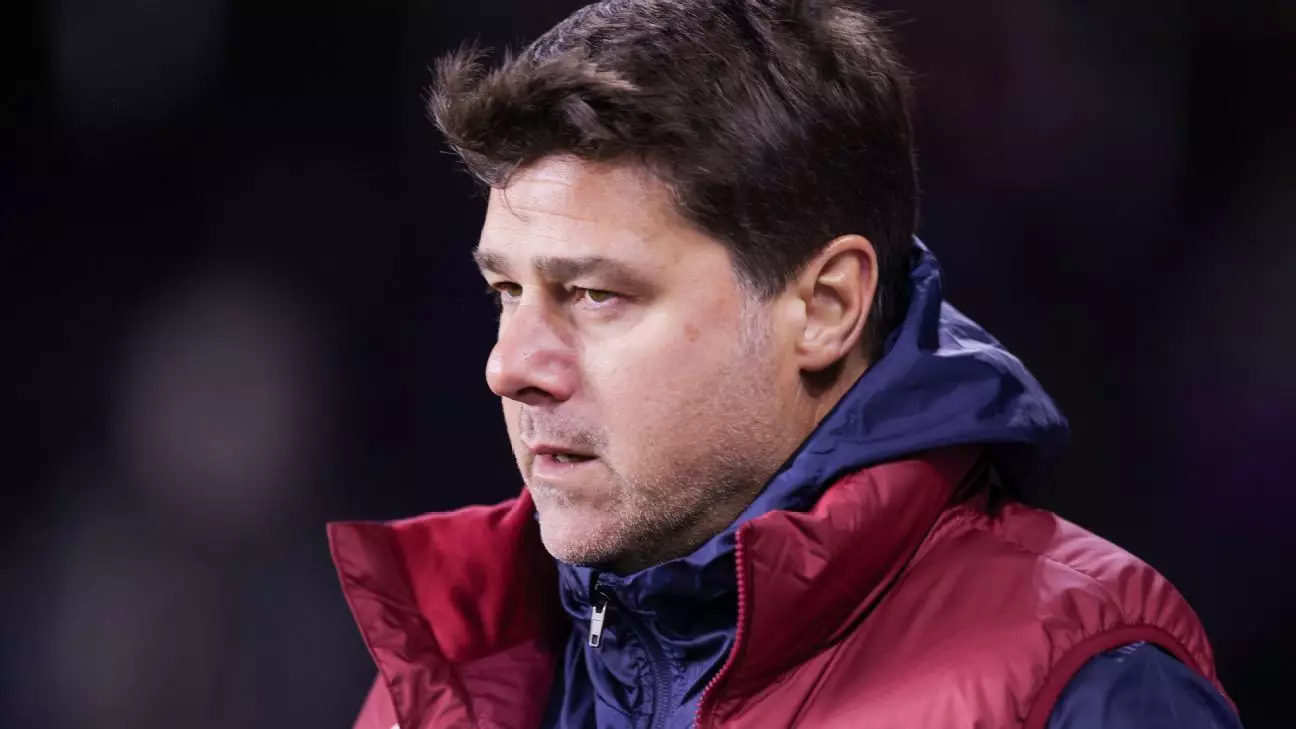The Concacaf Nations League semifinal between the U.S. men’s national team (USMNT) and Panama was shrouded in unexpected political undertones, primarily due to recent comments from U.S. President Donald Trump concerning Panama Canal sovereignty. However, time and again, the focus should remain on the pitch rather than off-field controversies. Manager Mauricio Pochettino emphasized this sentiment, urging players and fans alike to center their energy on the game rather than political narratives that cloud the event.
Pochettino’s insistence on leaving politics out of sports is not merely a diplomatic stance; it reflects a broader understanding of how sports should serve as unifying celebrations rather than divisions. For athletes and fans, soccer represents a chance to rally behind national pride and solidarity. The manager’s call to “feel proud to defend our flag and our badge” embodies an unwavering commitment to appreciating the sport’s core values above political discourse.
Historical Context and Lessons Learned
The intersection of politics and sports is not new. In fact, Pochettino himself has experienced similar tensions during his coaching career in the United Kingdom. He was active during a time when the geopolitical climate surrounding the Falklands War was a contentious topic within football discussions. Such experiences underscore the importance of maintaining professional integrity while respecting individual beliefs and values.
By highlighting a refusal to engage in the political narratives surrounding soccer, Pochettino advocates for a return to sportsmanship. His perspective fosters an atmosphere where spectators can relish the sport, enjoy the artistry of the game, and unite as supporters regardless of external factors.
A Call for Respectful Engagement
Both Pochettino and Panama’s coach, Thomas Christiansen, clearly articulated a mutual desire to prioritize sporting conversations over political ones. Christiansen solidly reaffirmed, “The political situation, it’s not my business,” which illustrates the shared understanding among coaches that the essence of soccer lies in player performance and rivalries, not in geopolitics. This mutual respect does not shy away from acknowledging struggles and rivalries that enhance the competitive spirit but instead seeks to channel these feelings into positive energy on the pitch.
Jesse Marsch, coach of Canada, reinforced this notion by suggesting that sports allow for a unique celebration of national identities without descending into disrespectful behavior during competitions. He expressed hope that the tournament reflects collective societal advancements, promoting an environment where national support remains untainted by political debates.
Sports as a Unifying Force
At its heart, soccer thrives on emotional connection. The passion in stadiums, the shared ecstasy in victories, and the heartbreaks in losses weave a tapestry of communal experiences transcending borders. This is especially relevant in a diverse context like the Concacaf Nations League, where teams from different nations converge, often with historical rivalries and unique narratives distinct to each country.
As Pochettino rightly puts it, soccer should be about enjoyment and fun, providing fans with an opportunity to escape from daily challenges. By championing the narrative of respect and sportsmanship, players and coaches alike can foster an environment where talents are on full display. In this regard, soccer becomes a celebration rather than a battleground for political differences.
Future of Football in a Changing Landscape
Looking ahead, the merging of diverse cultural backgrounds and experiences among players in tournaments like the Concacaf Nations League offers a golden opportunity to diffuse prevailing tensions through shared passion. When teams play their hearts out, irrespective of nationalistic divides, they showcase the true spirit of football—especially in times when the world can often feel fractured.
As the tournament progresses, it remains vital for all involved—players, managers, and fans—to continually remind themselves of the larger picture: that ultimately, sports exist to inspire joy, provoke healthy competition, and build meaningful relationships across geopolitical divides. The task ahead hinges on maintaining this focus, letting sports shine as the ultimate unifying force in a world that often forgets the beauty of collective experience.


Leave a Reply